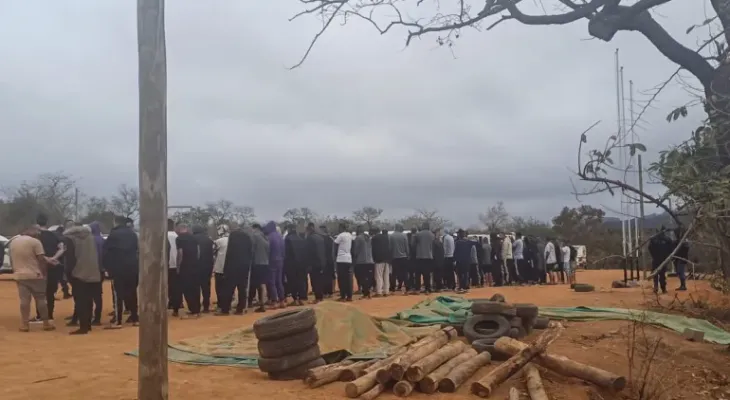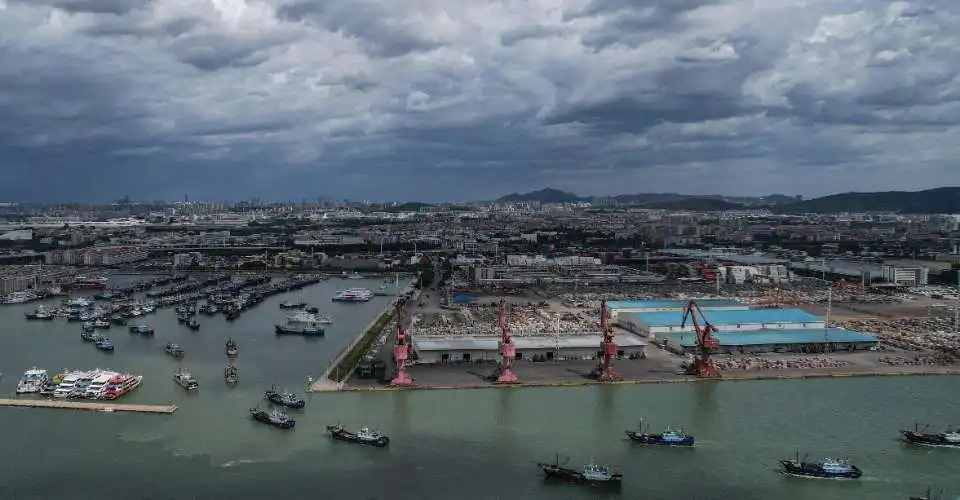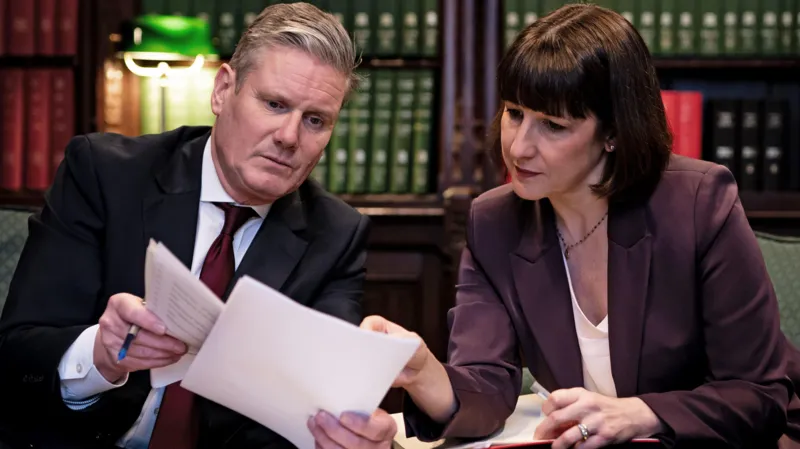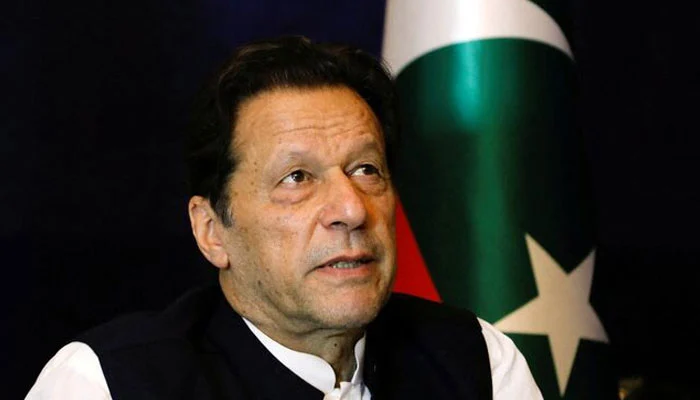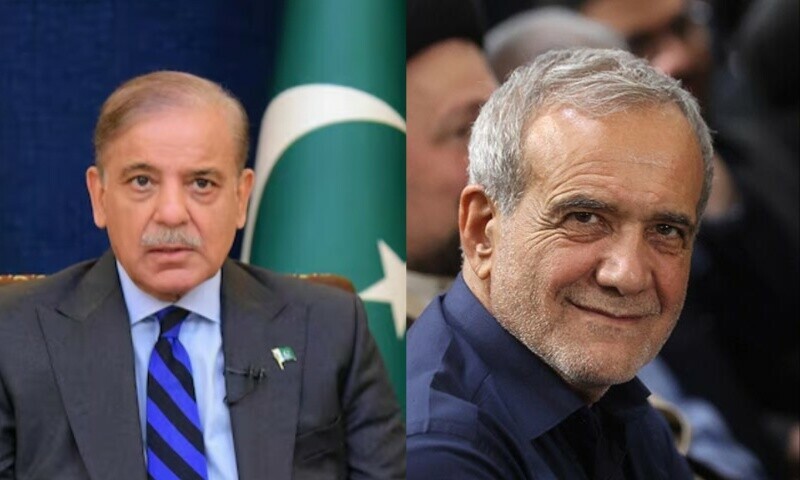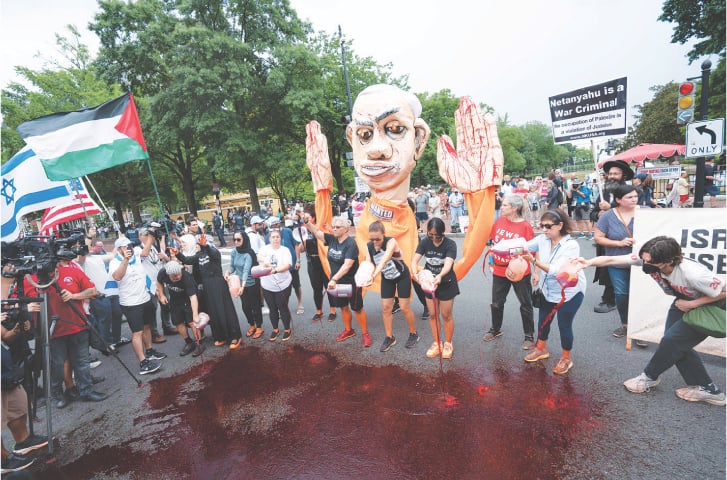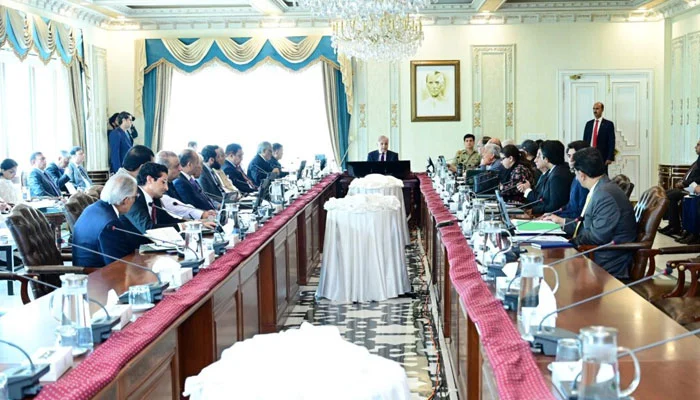Prime Minister Shehbaz Sharif has said that the government will not tolerate any propaganda against the armed forces of Pakistan, warning the Pakistan Tehreek-e-Insaf (PTI) against running smear campaign targeting the country and the army chief.
“The perpetrators of the May 9 riots, who had also attacked parliament and PTV and besieged the PM House in the past, have resorted to new tactics to malign the country and its armed forces as a malicious campaign was run against Army Chief General Asim Munir from the official website of the PTI,” said PM Shehbaz, while chairing a meeting of the federal cabinet on Wednesday.
“We will not tolerate any such steps against the country, its innocent people, and its armed forces.”
The prime minister’s remarks came two days after Inter-Services Public Relations Director-General (DG ISPR) Lt General Ahmed Sharif Chaudhry called on the nation to stand up against militants and “digital terrorists”.
“Digital terrorism is being done on social media. The army is standing up against terrorists and digital terrorists. The time has come for the entire nation to stand up against them,” the chief military spokesperson stated on Monday.
On the same day, PTI’s Information Secretary Raoof Hasan was arrested from the party’s central secretariat in the federal capital for being allegedly involved in propaganda against the country and its integrity.
In today’s cabinet meeting, the premier also reiterated his call for national unity to protect the national interest.
The federal cabinet did not discuss about the government’s decision to ban the Pakistan Tehreek-e-Insaf (PTI) during its meeting, sources told Geo News on Wednesday.
However, the federal cabinet huddle did not discuss the much-hyped matter of imposing ban on the opposition PTI and invoking Article 6 (high treason) against the former prime minister Imran Khan, ex-president Arif Alvi and former National Assembly deputy speaker Qasim Suri.
There were reports that the matter of banning the Imran Khan-founded party will come under cabinet’s discussion today after Information Minister Attaullah Tarar recently announced that the federal government would impose a ban on the PTI over its alleged involvement in the anti-state activities.
PM Shehbaz also pointed out the surge in terror incidents, particularly in Khyber Pakhtunkhwa and Balochistan, resulting in the martyrdom of the personnel of the security forces and the law enforcement agencies.
He condemned the recent terrorist attacks that claimed the lives of some personnel of armed forces in Pakistan, saying these incidents that indicate the involvement of Tehreek-e-Taliban Pakistan (TTP) holed up in Afghanistan are “unacceptable”.
He said Pakistan was fully prepared to protect its citizens but desired to resolve the matter peacefully.
Two days earlier, the Pakistan Army killed three terrorists who were trying to infiltrate the Pak-Afghan border from Afghanistan, in the Dir district of Khyber Pakhtunkhwa.
Moreover, two terrorist attacks took place last week, one in DI Khan and the other in Bannu. Two soldiers and five civilians were martyred in DI Khan while eight other soldiers were martyred while trying to foil a terrorist infiltration into the Bannu Cantonment in the wee hours of July 15.
PM Shehbaz termed this current wave of terrorism a machination against the country, arguing that it was taking place at a time when the coalition government was making efforts for development as it reached a staff level-agreement with IMF despite challenges and announced a three-month relief package for 96% of domestic power consumers.
Highlighting the role of Afghanistan in the wave of terrorism, the prime minister said the government was in interaction with them as Defence Minister Khawaja Muhammad Asif also visited there.
He highlighted that the country was hosting Afghan refugees only to be rewarded with the attacks by terrorists from the Afghan soil.
“But how is it possible that we hosted millions of their people here without any complaint? We treated them like our brothers and never considered them as a burden. But we were rewarded in the form of TTP attacks on our citizens to mar the country’s peace and business. This is not acceptable,” he remarked.
Visa fee to be abolished for 126 countries
The prime minister apprised the members of a decision to abolish visa fees for 126 countries as a “quantum jump” to bring ease of doing business and attract businessmen, tourists and travellers to Pakistan.
The decision, made after a threadbare discussion, would be tabled before the cabinet for its consideration, he added.
Prime Minister Shehbaz said that visitors would get visas within 24 hours through the electronic travel authorisation form. Besides, E-gates would be set up at Gwadar Port and nine airports – initially at the Islamabad, Lahore and Karachi airports.
The prime minister also strongly condemned the unprecedented human rights abuses of Israel against Palestinians as around 40,000 Palestinians had been killed including thousands of children and women.
He said despite the resolutions passed by the United Nations Security Council and UN General Assembly and the decision by the International Court of Justice, Israel remained adamant on its oppression which was highly condemnable.
The prime minister drew attention to the attacks on Pakistan’s missions in Germany and London. He said the Foreign Office had timely taken up the matter and that the envoys of the countries concerned should be given demarches to seek the protection of Pakistan’s missions.




